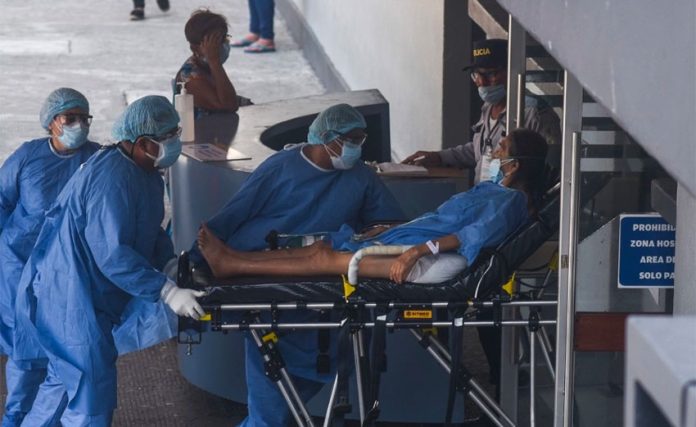The number of Covid-19-free “municipalities of hope” has shrunk by more than half in just 10 days as the infectious disease continues its incursion into virtually all corners of the country.
The federal government initially identified 324 municipalities that hadn’t recorded a single Covid-19 case and didn’t border any with known cases.
The municipalities were given the green light to lift coronavirus restrictions on May 18 and get back to work and school, although most chose not to.
Now, there are just 145 “municipalities of hope” left as the other 179 – 55% of the total – have either recorded a coronavirus case or adjoin one where the disease has been detected.
Thirty-seven of the erstwhile beacons of hope fall into the former category while the other 142 are in the latter.
As a result, Hidalgo, Michoacán, San Luis Potosí and Yucatán no longer have any “municipalities of hope.”
Of the remaining 145, 104 are in Oaxaca; there are nine in each of Guerrero and Puebla; Sonora has seven; five are located in Veracruz; Chihuahua, Jalisco and Nuevo León have three each; and there is one “municipality of hope” in each of Chiapas and Tamaulipas.
Manuel Suárez Lastra, director of the Institute of Geography at the National Autonomous University (UNAM), said that the reduction in numbers is evidence that the pandemic is continuing to expand across Mexico’s territory.
“The number of Covid-19 cases is increasing, … the contagion that started in urban areas has moved to rural areas,” he said, adding that it’s expected that the disease will eventually reach practically all of Mexico’s almost 2,500 municipalities.
Mauricio Rodríguez, an academic in UNAM’s Faculty of Medicine, said that residents of some communities in marginalized “municipalities of hope” have not been adequately informed about how they can protect themselves against infection.
A study by UNAM academics also found that 75% of Mexico’s municipalities are critically, very highly or highly vulnerable to an outbreak of Covid-19 because they have a high percentage of residents aged over 60, have large indigenous populations, lack hospital services and medical personnel and/or are economically disadvantaged.
Coronavirus case numbers and deaths have grown rapidly since the federal government declared the start of phase three of the pandemic on April 21. More than 80,000 people have now tested positive and just over 9,000 have succumbed to the disease, according to official data.
The national social distancing initiative concludes Saturday but every state except Zacatecas has been allocated a red light on the government’s stoplight system to determine which coronavirus restrictions can be lifted and where, meaning that nonessential activities will not recommence on Monday in the vast majority of the country.
Source: El Heraldo de México (sp)
